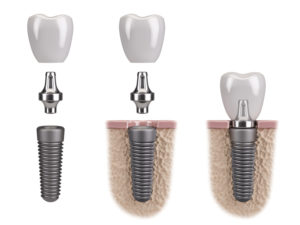Our Services
Your new smile starts hereThe advances in dental treatments and materials can give you a healthier, more complete smile that can last you a lifetime. Our team can help revitalize and maintain your teeth and gums, giving you the smile you’ve always wanted.
Your First Visit
A Personalized Plan
During your first visit, we will discuss your dental history, take images of your teeth and mouth, and perform a comprehensive exam. Once we have an understanding of your current dental situation, our team will create a personalized treatment plan with you and answer your questions.
X-Rays
These provide a lot of detail and allow your dentist to find cavities, check the health of the tooth root and bone surrounding the tooth, check the status of developing teeth, and monitor the general health of your teeth and jawbone.
Comprehensive Exam
Comprehensive exams are an important part of establishing and maintaining your oral health. During your first exam with us and with the use of a full series of x-rays and photos, we will:
- Evaluate your medical and dental histories
- Perform an Oral Cancer Screening
- Inspect your teeth for decay and fractures
- Complete a thorough periodontal exam to diagnose the health of your teeth in the gums and bone
Signature Services
Your Roadmap to a Healthy Smile
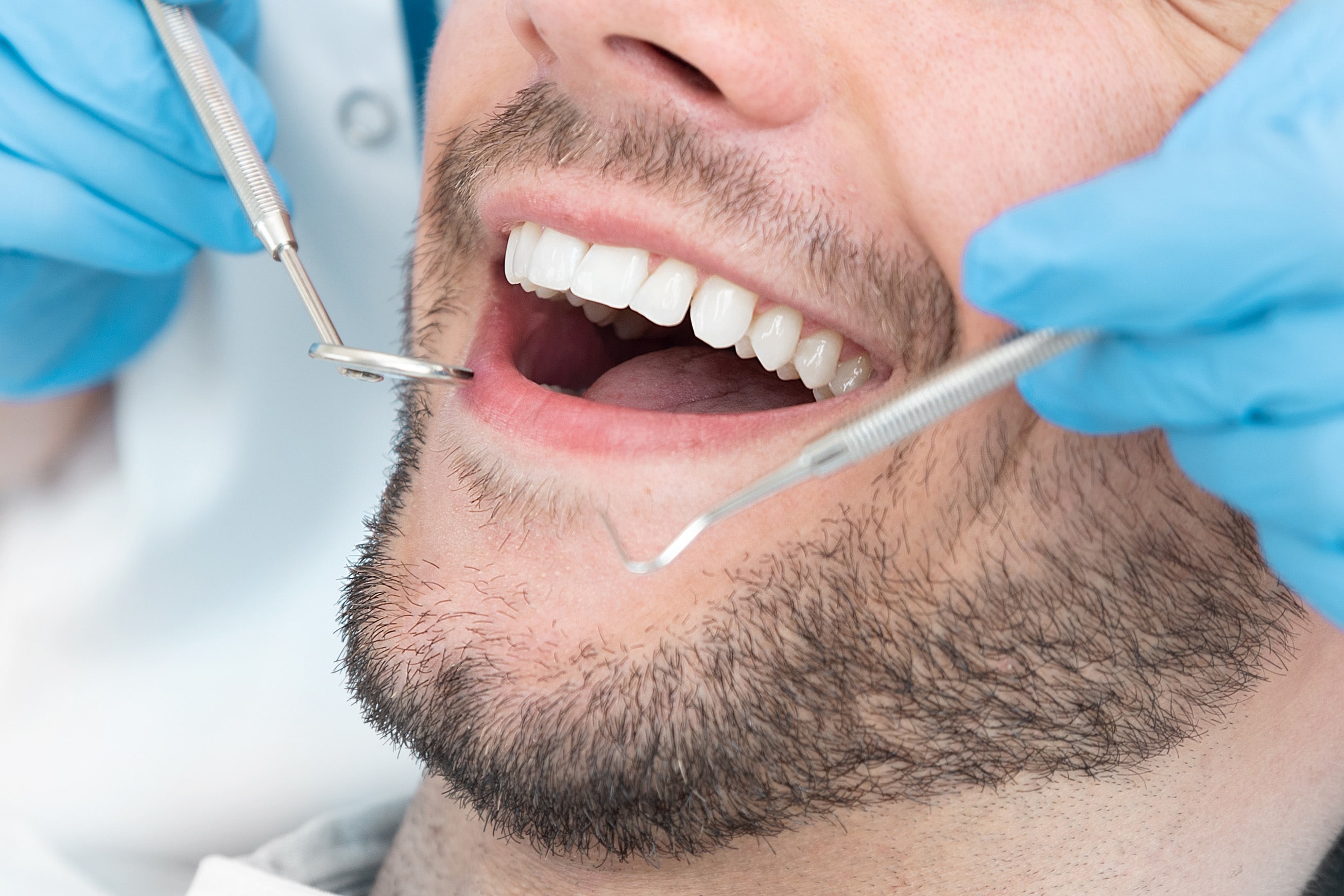
Healthy Mouth Service
- Non-Surgical Cleanings
- Arestin
- Fillings, non-mercury biocompatible tooth colored
- Single Visit CEREC Crowns
- Single Visit CEREC Bridges
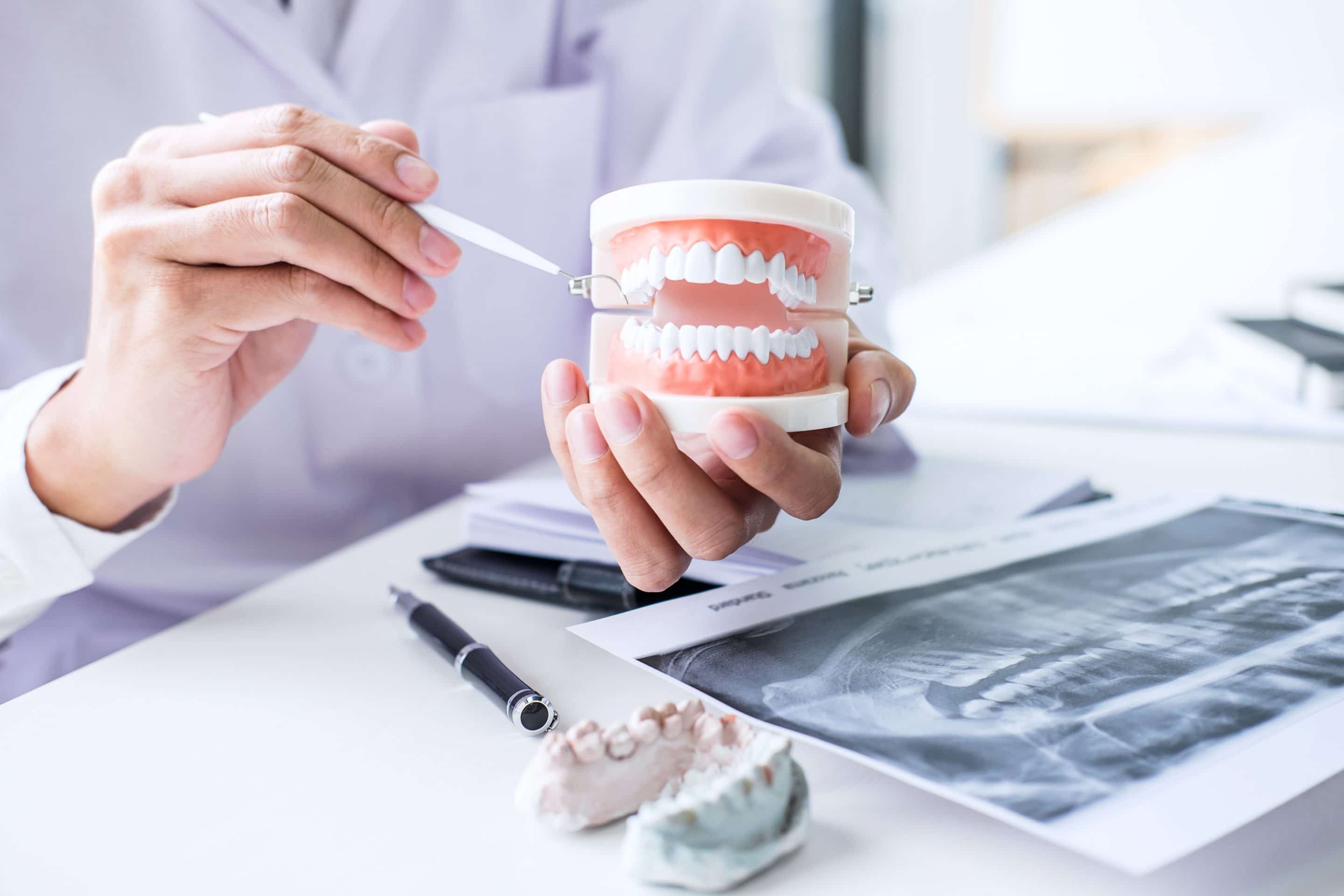
New You Dentures
- Face Lift Dentures incorporate neuromuscular dentistry, which result in a great fit and younger look while maintaining the ability to eat normally.
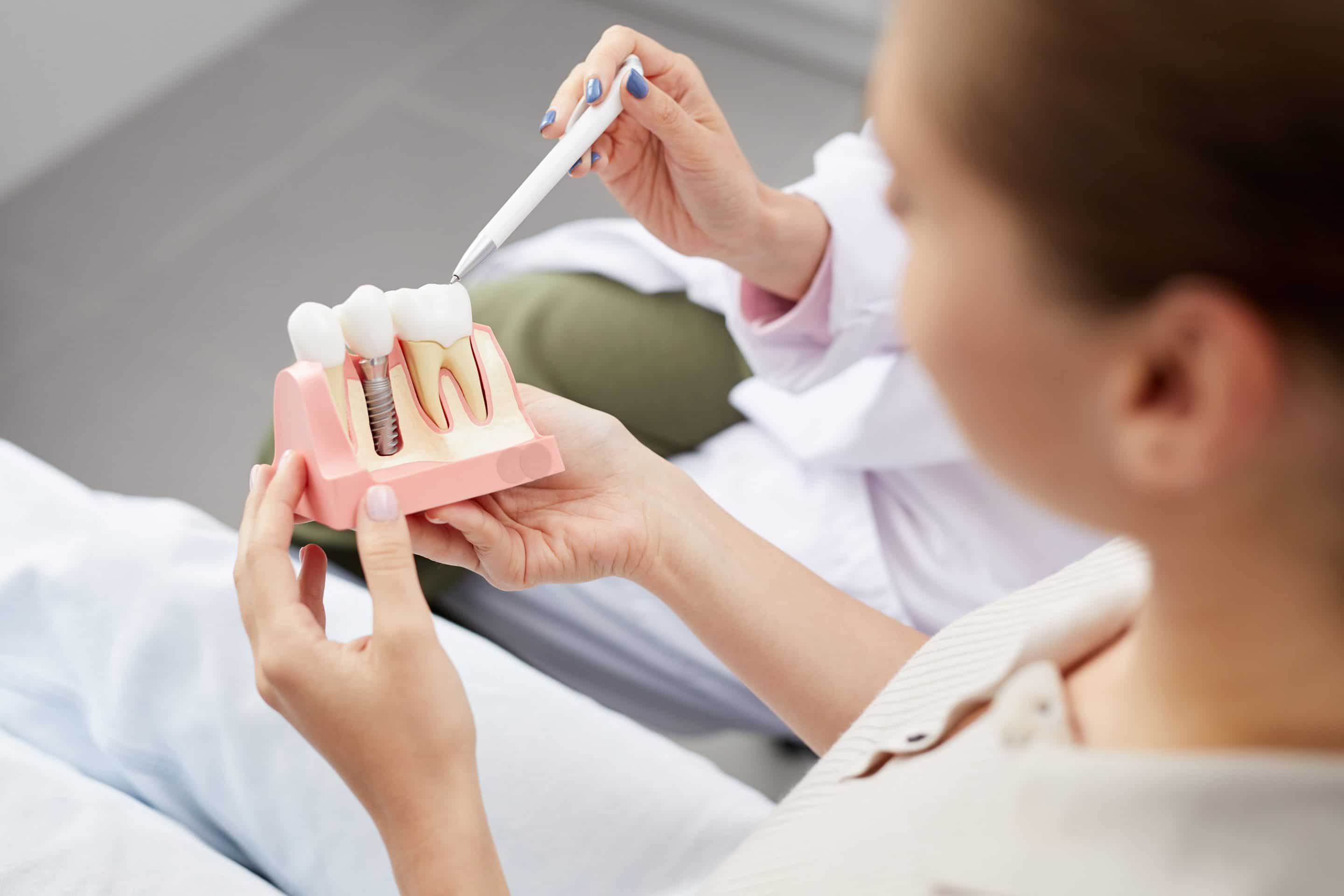
Dental Implants
- Extraction and Restoration for single or multiple implants
- Multiple placement for bridge
- Full mouth extraction
- Placement for implant retained removable or fixed denture
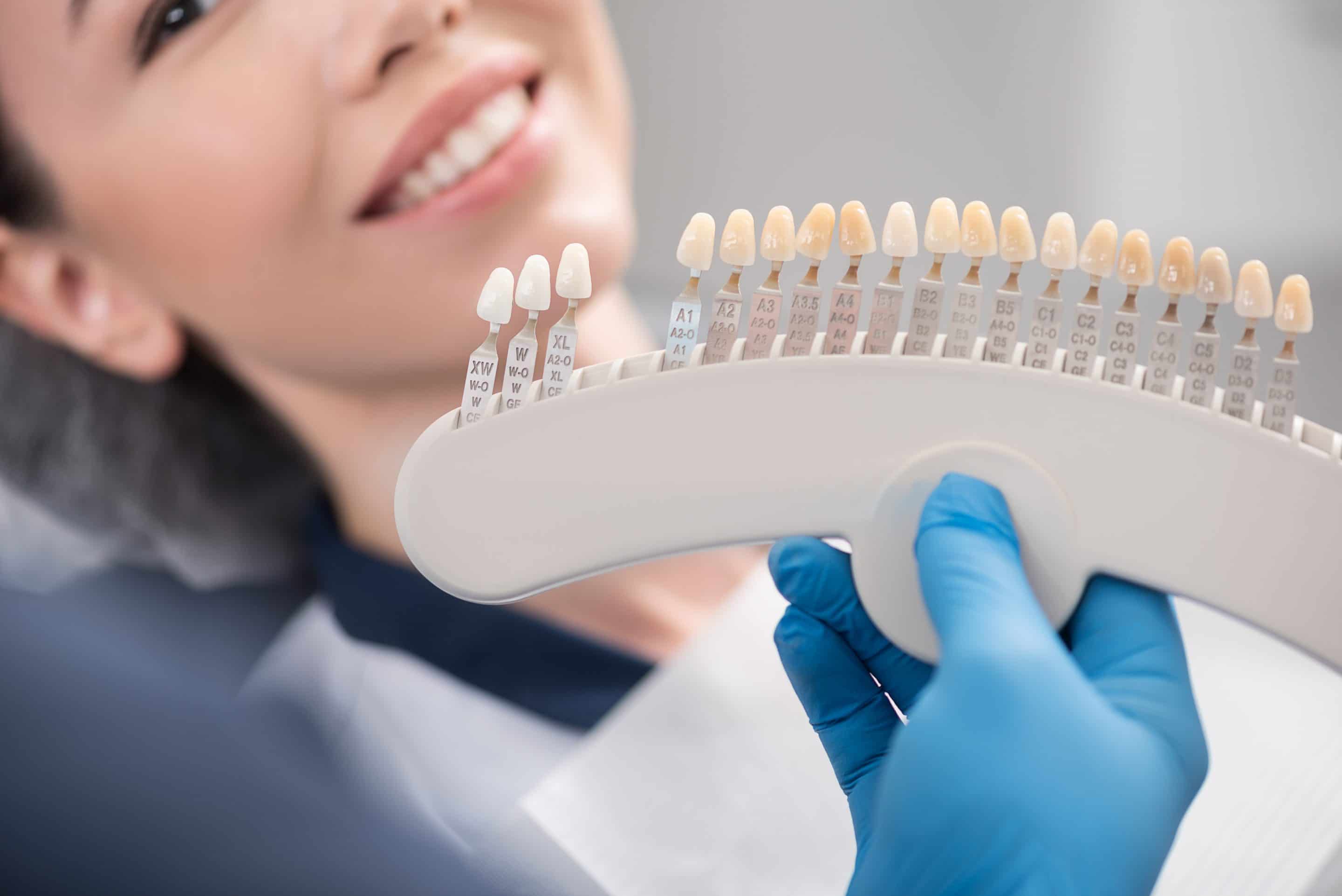
Cosmetic Service
- ZOOM Whitening
- Veneers
- Full Mouth Rehabilitation
- Botox Injections
Common Procedures
The ADA Recommends You Visit Every 6 Months
Fillings
Newer dental fillings include ceramic and plastic compounds that mimic the appearance of natural teeth. These compounds, often called composite resins, are usually used on the front teeth where a natural appearance is important, but they can also be used on the back teeth depending on the location and extent of the tooth decay.
There are two different kinds of fillings: direct and indirect. Direct fillings are fillings placed into a prepared cavity in a single visit. They include silver amalgam, glass ionomers, resin ionomers, and composite (resin) fillings. Indirect fillings generally require two or more visits. They include inlays, onlays, and veneers. They are used when a tooth has too much damage to support a filling but not enough to necessitate a crown.
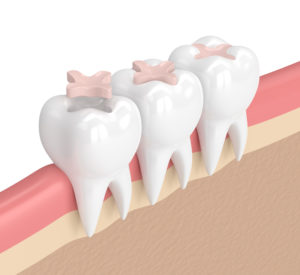
Extractions
There are times when it is necessary to remove a tooth. Sometimes a baby tooth has misshapen or long roots that prevent it from falling out as it should, and the tooth must be removed to make way for the permanent tooth to erupt. At other times, a tooth may have so much decay that it puts the surrounding teeth at risk of decay, so your doctor may recommend removal and replacement with a bridge or implant. Infection, orthodontic correction, or problems with a wisdom tooth can also require removal of a tooth.
When it is determined that a tooth needs to be removed, your dentist may extract the tooth during a regular checkup or may request another visit for this procedure. The root of each tooth is encased within your jawbone in a “tooth socket,” and your tooth is held in that socket by a ligament. In order to extract a tooth, your dentist must expand the socket and separate the tooth from the ligament holding it in place. While this procedure is typically very quick, it is important to share with your doctor any concerns or preferences for sedation.
Once a tooth has been removed, neighboring teeth may shift, causing problems with chewing or with your jaw joint function. To avoid these complications, your dentist may recommend that you replace the extracted tooth.
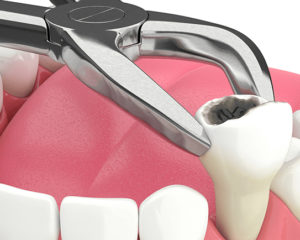
Crowns
A dental crown is a tooth-shaped “cap” that is placed over a tooth. The cap restores the tooth’s shape and size, strength, and appearance.The crowns, when cemented into place, cover the visible portion of a tooth. Using our Cerec machine, we can provide a permanent crown in a single visit.
A dental crown may be needed to:
- Protect a weak tooth (for example, from decay) from breaking or to hold together parts of a cracked tooth
- Restore a broken tooth or a severely worn down tooth
- Cover and support a tooth with a large filling and not much tooth remaining
- Hold a dental bridge in place
- Cover misshaped or severely discolored teeth
- Cover a dental implant
- Cover a tooth treated with a root canal
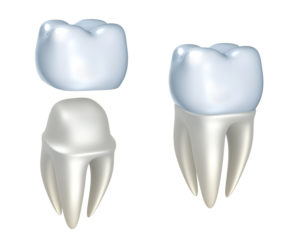
Implants
Dental implants are artificial tooth roots that provide a permanent base for replacement teeth. People who suffer from missing or failing teeth and chronic dental problems turn to implants instead of dentures, bridges and crowns, This is due to the fit and function giving a natural feel, making dental implants the new standard in tooth replacement.
What makes dental implants feel completely comfortable and secure? We use a medical-grade titanium implant fixture that actually fuses to the living bone cells of the jaw as time passes. This union forms a strong and durable anchor for your new tooth, meaning there’s no slippage or other movement like you might get with dentures. There are no issues when eating with implants, which means no regular repairs or worrying about showing off your smile.
